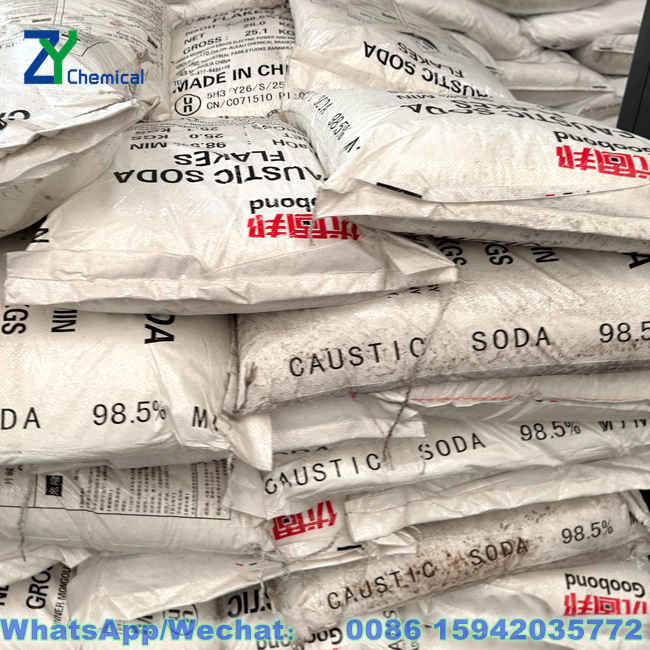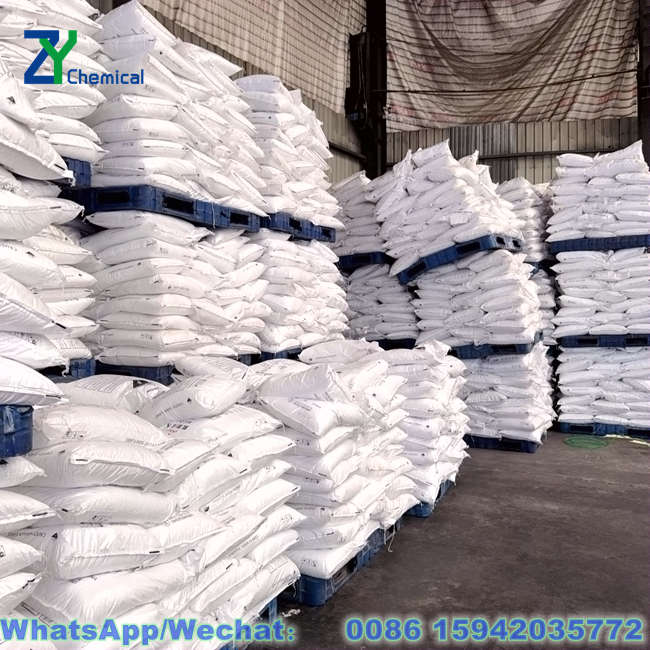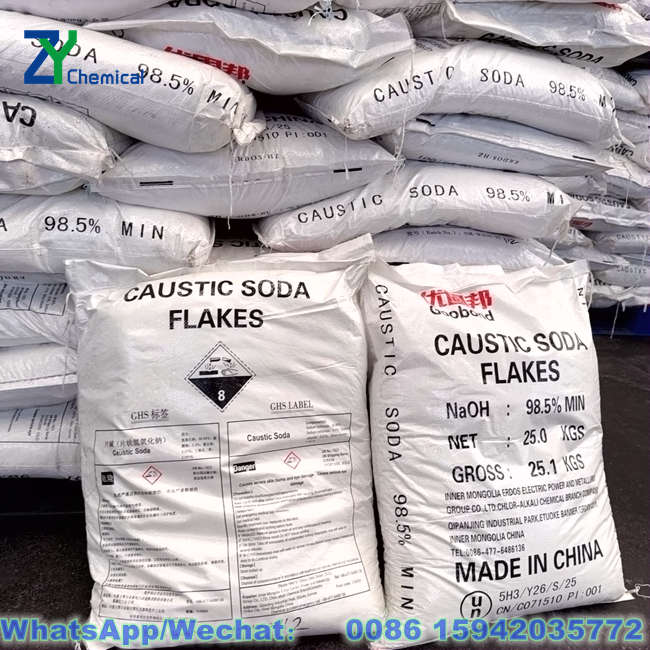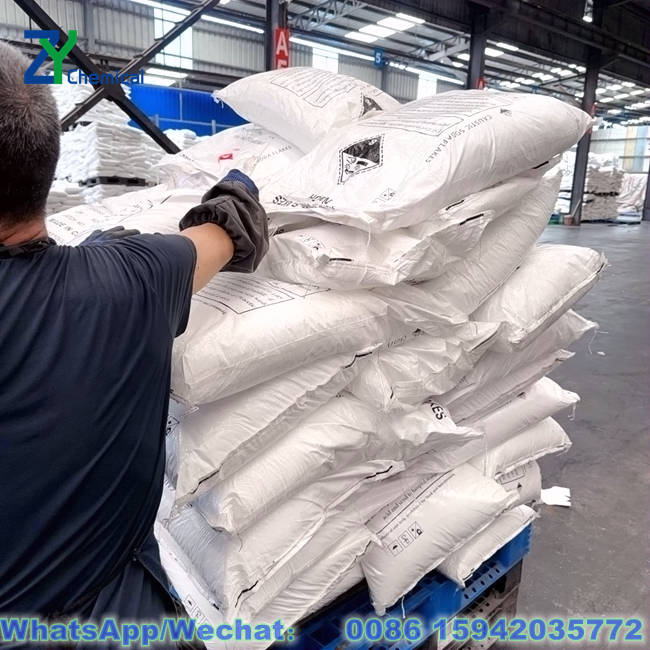Caustic flakes, also known as sodium hydroxide flakes (NaOH), are one of the most widely used alkaline materials in modern industry. They appear as white, odorless solid flakes with a purity of 98.5%–99%, offering exceptional solubility and reactivity. These flakes are produced through the electrolysis of brine (sodium chloride solution), resulting in a highly concentrated and pure chemical base.
Caustic flakes (sodium hydroxide flakes, NaOH) are white, brittle crystalline sheets produced from concentrated sodium hydroxide solution. Our standard industrial grade is NaOH 98.5%, supplied in export-ready packaging. Caustic flakes dissolve quickly in water and deliver powerful alkalinity for a wide range of industrial processes. Typical container loading for 25kg bag packing is ≈ 27 tonnes per 20’ FCL.
Raw material: produced from chlorine-alkali electrolysis (membrane cell process).
Process: brine electrolysis → concentration → evaporation/crystallization → flaking → drying → screening → packing.
Resulting material: high-purity NaOH flakes with controlled moisture and low carbonate/chloride content. This production route ensures stable chemical composition and minimal metallic impurities, suitable for demanding industrial applications.


| Parameter | Typical value |
|---|---|
| Product | Caustic soda flakes (sodium hydroxide) |
| Chemical formula | NaOH |
| Purity (NaOH) | ≥ 98.5% |
| Moisture (H₂O) | ≤ 0.5% |
| Na₂CO₃ (carbonate) | ≤ 0.8% |
| NaCl (chloride) | ≤ 0.05% |
| Appearance | White brittle flakes |
| Packing | 25 kg PP/PE lined bags (double-lined); jumbo bags on request |
| Container load | ≈ 27 tonnes net per 20’ FCL (25kg bag format) |
| HS code | 2815.11.00 |
| Documents | COA, MSDS, invoice, packing list, B/L; third-party inspection available |
Caustic flakes are a versatile industrial alkali. Key uses include:
Soap & detergent production: primary alkali for saponification; ensures consistent batch quality and product hardness.
Water treatment: pH adjustment, neutralization of acidic wastewaters, and aiding in coagulation/precipitation processes.
Textile processing: scouring, mercerization and preparation of fibers to improve dye uptake and fabric properties.
Pulp & paper industry: delignification and pulping processes, chemical recovery cycles.
Chemical manufacturing: raw material for producing sodium salts, synthetic organics and intermediates.
Alumina production & metallurgy: used in certain refining and chemical separation steps.
Industrial cleaning & degreasing: concentrated alkaline cleaners and descaling agents.
Laboratory & formulation use: reagent-grade in many industrial labs (subject to spec).
Understanding price drivers helps compare offers and secure the best landed cost per kg:
Base factory price per tonne — the main component; influenced by raw material and energy costs.
Purity & specification — tighter spec (lower moisture/impurities) can raise price. Our standard 98.5% is market-competitive.
Packaging cost — 25kg double-lined bags vs jumbo bags; customized printing increases packing cost.
Logistics & freight — FOB vs CIF; ocean freight rates, insurance, and destination port charges affect final per-kg price.
Inspection & certification — SGS/BV or additional lab tests add to shipment costs.
Volume & contract terms — higher volumes and long-term contracts typically reduce per-tonne pricing.
Season & market trends — regional demand spikes and shipping seasonality may temporarily raise prices.
How to convert: if supplier quotes FOB price per tonne, divide that figure by 1,000 to get FOB price per kg. Add packaging and CIF components to obtain landed per-kg cost.


Standard packing: 25 kg PP/PE inner-lined bags, palletized on request.
Bulk options: jumbo bag (1.0 / 1.2 MT) available for large industrial users.
Container plan: ~27 tonnes per 20’ FCL when packed in 25 kg bags (confirm with shipping agent for final stowage).
Storage: keep in dry, ventilated warehouse away from acids and moisture.
Shipping docs: COA and MSDS are provided with every shipment to facilitate customs clearance.
Lot-by-lot QC: NaOH content, moisture, carbonate, chloride, and trace metals testing.
COA provided for each shipped lot; retained sample kept for traceability.
Third-party inspection (SGS / Bureau Veritas) available upon buyer request to verify quantity and quality prior to loading.
Hazard: strongly corrosive. Causes severe skin burns and eye damage.
PPE: chemical-resistant gloves, goggles, face shield, protective clothing and boots.
Dilution rule: always add caustic flakes to water slowly; never add water to caustic.
Storage: sealed bags in dry conditions; avoid exposure to acids and humidity.
Emergency: flush with large amounts of water and seek medical attention; consult MSDS.
When requesting a caustic flakes price, ask suppliers to provide:
FOB price per tonne (factory)
Packing & handling costs per tonne
CIF to your port (ocean freight + insurance + port charges) per tonne
Inspection & testing fees (if any)
Lead time and payment terms (TT / L/C)
MOQ and sample availability
COA & MSDS sample
q: What is the typical MOQ?
A: Standard MOQ = 1 × 20’ container (~27 tonnes for 25kg bag packing). Samples and LCL options may be available.
q: Can you provide COA before shipment?
A: Yes — sample COA and MSDS can be provided; final lot COA accompanies shipment.
q: How fast can you ship?
A: If in stock, typical preparation and loading within 7–14 days; production lead time 2–4 weeks if manufacturing is required.
q: Do you accept third-party inspection?
A: Yes — buyers can arrange SGS/BV inspection prior to loading.
q: How is the container loading calculated?
A: 27,000 kg ÷ 25 kg = 1,080 bags per 20’ FCL (approx.). Final stowage depends on palletization and container limits.
Factory-direct supply and competitive caustic flakes price.
Stable quality with rigorous QC and COA per lot.
Export experience to Africa, Latin America and Asia — documentation and logistics optimized.
Flexible packing options and OEM/private label printing on request.
Responsive commercial and technical support for buyers.
Request a competitive caustic flakes price today — send your required quantity, destination port and preferred incoterm (FOB/CIF/CFR). We will reply with an itemized quote, sample COA and lead time within 24 hours.